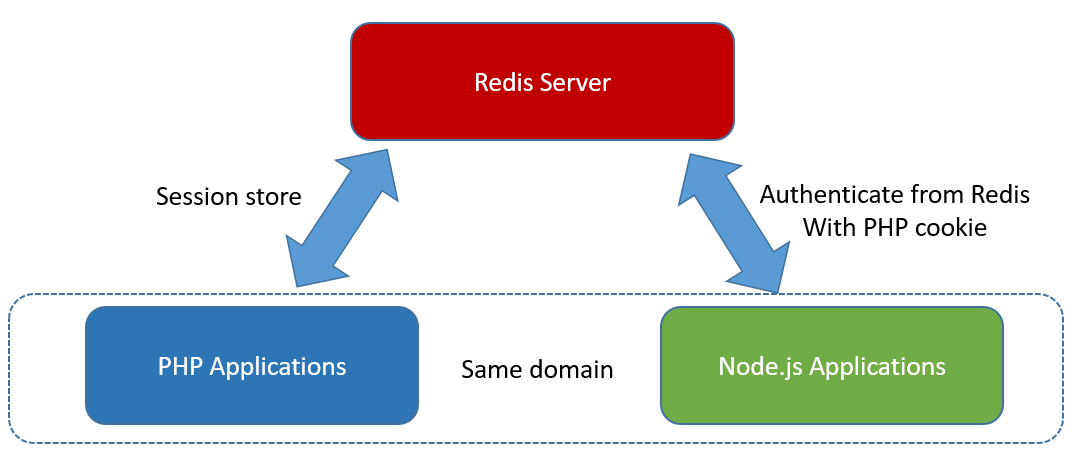passport-phpsession-redis
v1.0.3
Published
PHP session in redis authentication strategy for Passport.
Downloads
8
Maintainers
Readme
passport-phpsession-redis
Passport strategy for authenticating with existing PHP session.
The module lets you authenticate using existing PHP session in your Node.js applications. By plugging into Passport, PHP session in redis authentication can be easily and unobtrusively integrated into any application or framework that supports Connect-style middleware, including Express.

Install
$ npm install passport-phpsession-redisUsage
Configure Strategy
The PHP session in redis authentication strategy authenticates users using a existing PHP session. The strategy best need redis connect information and session(or cookie) name.
passport.use(new PhpsessionRedisStrategy({
sessionName: 'PHPSESSID',
redis: {
host: '127.0.0.1'
port: 6379,
db: 0,
prefix: 'PHPREDIS_SESSION'
}
},
function(session, done) {
if (!sesssion) return done(new Error('No session found.'))
var user = {
userName: session.name,
}
return done(void 0, user)
}
))Available Options
This strategy takes an optional options hash before the function, e.g. new PhpsessionRedisStrategy({/* options */, /* callback */}).
The available options are:
sessionName- Optional, defaults to 'username'redis- Optional object, pass this option to redis.createClient redis client refer
Authenticate Requests
Use passport.authenticate(), specifying the 'phpsession-redis' strategy, to
authenticate requests.
For example, as route middleware in an Express application:
app.use((req, res, next) => {
if(req.path !== '/login' && !req.isAuthenticated())
return passport.authenticate('phpsession-redis', { failureRedirect: '/login' })(req, res, next)
return next()
})